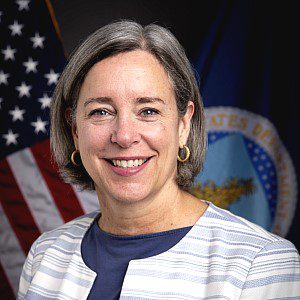
Alice Waters on the Power of Real Food REDUX
In this very special episode, we re-visit our conversation with award-winning Chez Panisse chef and cookbook author Alice Waters who...
About This Episode
In this very special episode, we re-visit our conversation with award-winning Chez Panisse chef and cookbook author Alice Waters who discusses the value of real, regenerative food for our children and our society as a whole. “Once you love nature, you can't make the wrong decision about anything. You don't want to do things that are really destroying the planet. You want to take care of her. Until we feel that way, we will never be able to make the right decisions,” she says. Waters founded Edible Schoolyard, an experiential learning program at a Berkeley middle school that deepens students’ relationship with food, gardening and cooking skills, and capacity for critical examination of the food system, more than 25 years ago. “The kitchen classroom became a place to teach world history. It's a way to reach a person through all their senses and those are pathways into our minds,” states Waters. “We decided to put our money behind our values to educate the next generation to change the world. I so believe that education is the deep place where we can make systemic change.”Resources and Mentions:

Alice Waters
Founder and Owner
Alice Waters is a chef, author, food activist, and the founder and owner of Chez Panisse Restaurant in Berkeley, California. She has been a champion of local sustainable agriculture for over four decades. In 1995 she founded the Edible Schoolyard Project, which advocates for a free organic school lunch for all children and a sustainable food curriculum in every public school. She has been Vice President of Slow Food International since 2002. She conceived and helped create the Yale Sustainable Food Project in 2003, and the Rome Sustainable Food Project at the American Academy in Rome in 2007. In 2015 she was awarded the National Humanities Medal by President Obama. Alice is the author of fifteen books, including New York Times bestsellers The Art of Simple Food I & II, The Edible Schoolyard: A Universal Idea, and, a memoir, Coming to My Senses: The Making of a Counterculture Cook.
Edible Schoolyard
https://edibleschoolyard.org/The Edible Schoolyard Project is a nonprofit organization dedicated to the transformation of public education by using organic school gardens, kitchens, and cafeterias to teach both academic subjects and the values of nourishment, stewardship, and community. Edible education provides hands-on experiences that connect students to food, nature, and each other; and it systematically addresses the crises of climate change, public health, and social inequality. At its heart is a dynamic and joyful learning experience for every child. Founded in 1995 by chef, author, and activist Alice Waters, the Edible Schoolyard Project began as an idea to transform the food experience at a public middle school in Berkeley, California. As the idea took shape, a coalition of educators, families, farmers, cooks, and artists joined the effort, working closely with students to create a flourishing garden and kitchen classroom. Today, the Edible Schoolyard at Dr. Martin Luther King, Jr. Middle School serves as a demonstration site and innovation hub for the field of edible education. Our curriculum offers students experiential learning opportunities that deepen their relationship with food, facilitate learning the skills of cooking and gardening, build their capacity for critical examination of the food system, and develop their agency to affect change in their own lives and in their communities.
Chez Panisse
https://www.chezpanisse.comAlice Waters opened Chez Panisse fifty years ago as a place where friends and neighbors could gather together around the table, eat good food, and exchange ideas about politics, art, and culture. The restaurant served one set menu that changed daily, highlighting local ingredients that were ripe and in season. In pursuit of taste, Alice and the cooks of Chez Panisse ended up at the doorsteps of the small organic farmers who were growing flavorful heirloom varieties of fruits and vegetables or raising heritage breeds of animals. Over time, the restaurant has built up a diverse network of these ethical local suppliers—ranchers, fishers, orchardists, foragers, farmers, and backyard gardeners—who practice regenerative agriculture and take care of the land.


